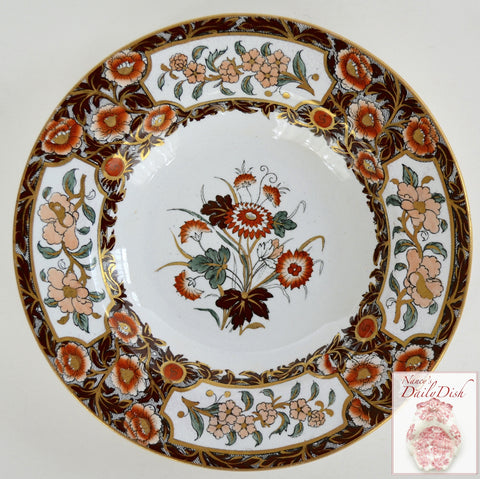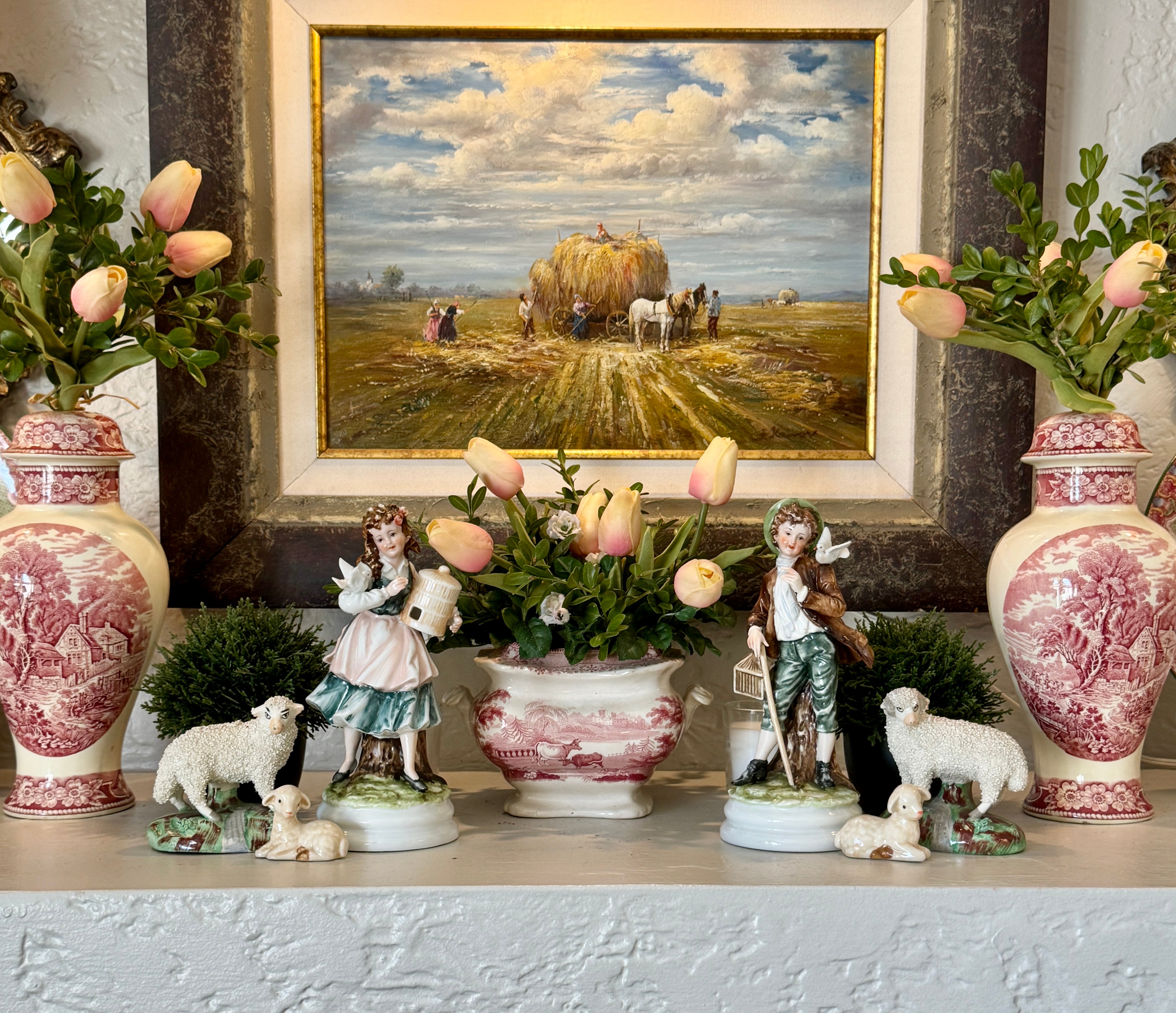See more: Soup Bowl
Antique Imari Floral Polychrome Clobbered Transferware Plate Flowers Hand Painted Ridgways
$39.99
Brand Ridgway
POLYCHROME TRANSFER WARE AESTHETIC MOVEMENT IMARI STAFFORDSHIRE SOUP PLATE / Shallow Bowl
Ridgway Birman
circa 1880-85
For consideration is this outstanding and rare polychromed transferware rimmed soup plate / bowl by Ridgways in the hard to find, Imari styled, Birman pattern. This is a very hard to locate piece and in an unusual black transfer but is elaborately detailed and hand painted with gilt / gold, rust orange, brown, green and peach. Imari is a style of porcelain named after the Japanese port from which it was shipped to the West, beginning in the late 17th century. Originally made in the town now known as Arita, which became a center for porcelain thanks to its proximity to kaolin-rich Izumiyama, Imari ware (also called Japan or Japan ware), took its design cues from colorful Japanese textiles of the day. Exotic landscapes, flowers, gnarled trees, long-winged birds such as cranes, and depictions of courtesans in exquisitely detailed kimonos are just a few examples of the most common Imari imagery. The items are often made of colored porcelain and ceramic with cobalt blue underglaze and red, green, rust and gold / gilt overglaze.
Measures: appx 7 3/8" x 1 1/8" deep
Condition: Only some crazing and overall glaze darkening, commensurate to age. No chips or cracks.
Ridgway Birman
circa 1880-85
For consideration is this outstanding and rare polychromed transferware rimmed soup plate / bowl by Ridgways in the hard to find, Imari styled, Birman pattern. This is a very hard to locate piece and in an unusual black transfer but is elaborately detailed and hand painted with gilt / gold, rust orange, brown, green and peach. Imari is a style of porcelain named after the Japanese port from which it was shipped to the West, beginning in the late 17th century. Originally made in the town now known as Arita, which became a center for porcelain thanks to its proximity to kaolin-rich Izumiyama, Imari ware (also called Japan or Japan ware), took its design cues from colorful Japanese textiles of the day. Exotic landscapes, flowers, gnarled trees, long-winged birds such as cranes, and depictions of courtesans in exquisitely detailed kimonos are just a few examples of the most common Imari imagery. The items are often made of colored porcelain and ceramic with cobalt blue underglaze and red, green, rust and gold / gilt overglaze.
Measures: appx 7 3/8" x 1 1/8" deep
Condition: Only some crazing and overall glaze darkening, commensurate to age. No chips or cracks.
















